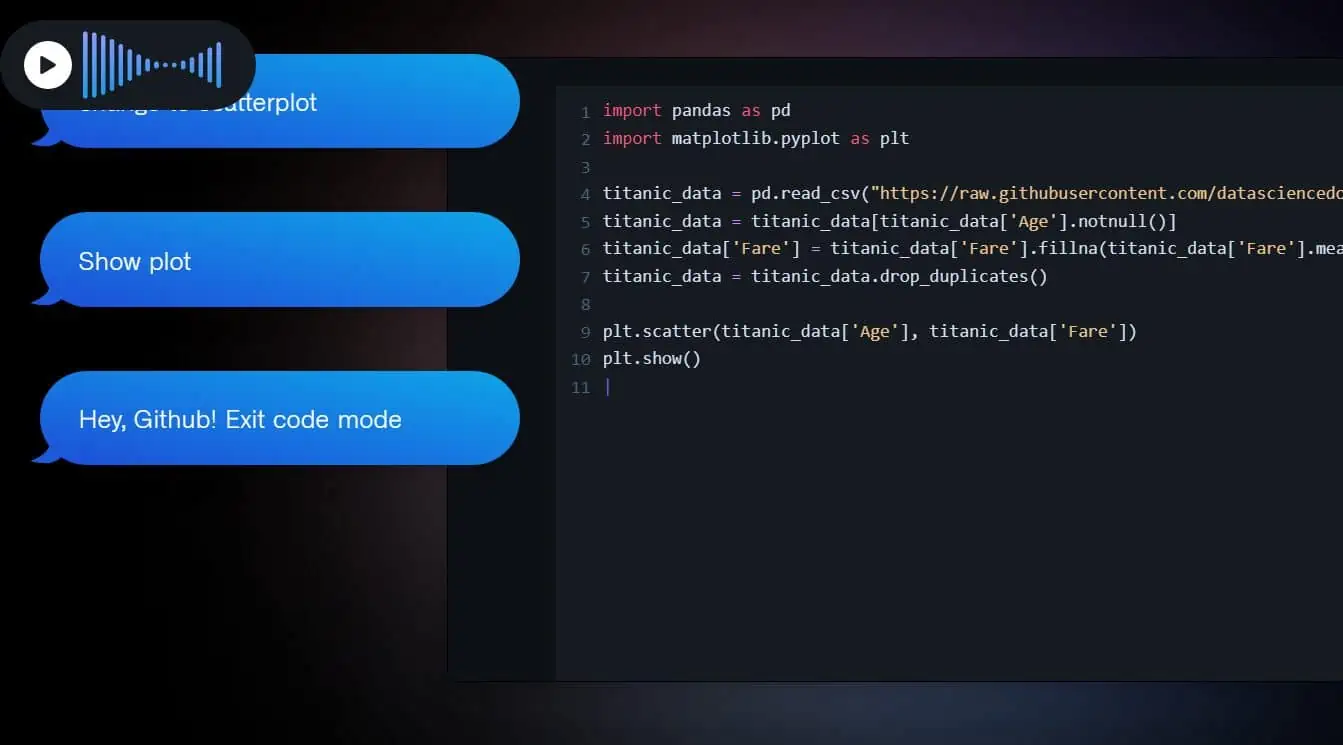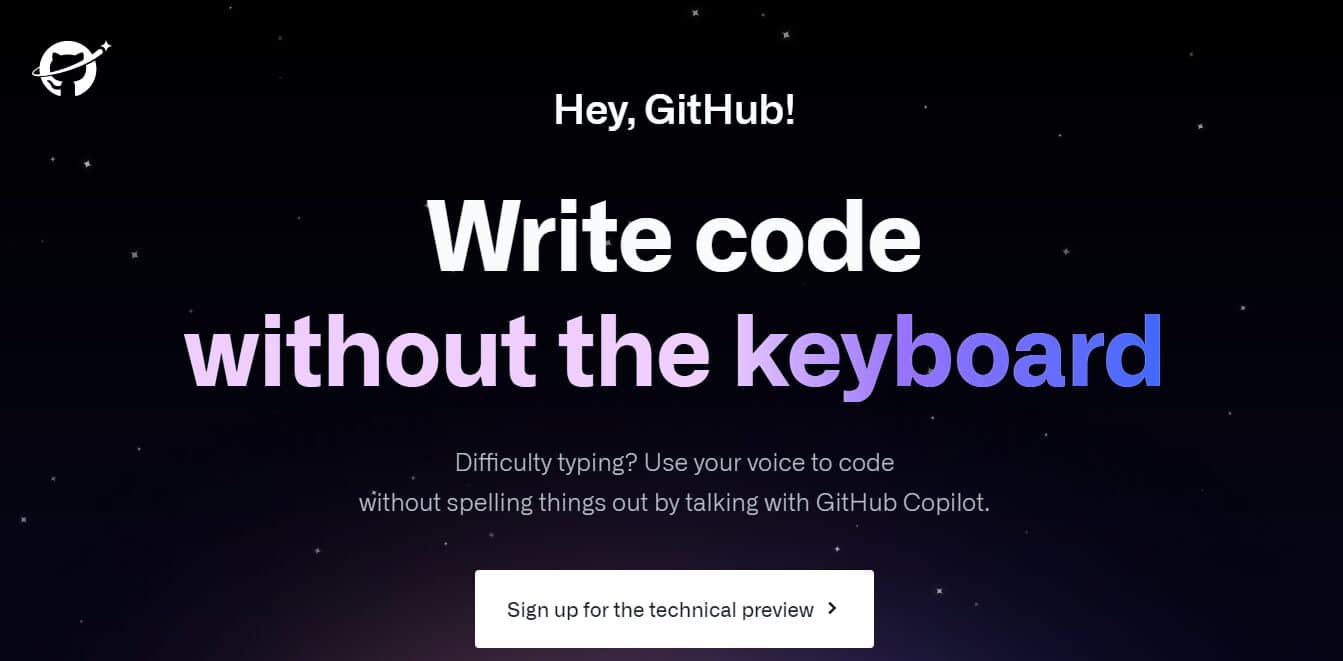GitHub introduces 'Hey, GitHub!' experiment to allow voice-based interaction with Copilot
3 min. read
Published on
Read our disclosure page to find out how can you help MSPoweruser sustain the editorial team Read more

The GitHub Next team announced a new experiment among Copilot users: “Hey, GitHub!” This will bring a set of new features to GitHub Copilot that will allow voice interaction with the tool.
“With the power of your voice, we’re excited about the potential to bring the benefits of GitHub Copilot to even more developers, including developers who have difficulty typing using their hands,” GitHub says in a blog post announcing the experiment. “‘Hey, GitHub!‘” only reduces the need for a keyboard when coding within VS Code for now, but we hope to expand its capabilities through further research and testing.”
A signup waitlist is now available for those who want to try Hey, GitHub! technical preview. Joining the experiment will enable a bunch of voice commands to Copilot for you, allowing you to code without using a keyboard. According to GitHub, Hey, GitHub! can recognize “natural language,” making Copilot a more user-friendly tool among programmers. This also boosts Copilot’s accessibility for other developers who find the conventional process of delivering code inputs difficult.
Aside from writing and editing codes, Hey, GitHub! will allow programmers to do code navigation by simply indicating the line where they want to view (e.g., “Hey, GitHub! go to line 34,” “Hey, GitHub! go to method X,” or “Hey, GitHub! go to next block,”). It also accepts other VisualStudio Code commands such as “Toggle zen mode” and “run the program.” Additionally, experiment participants will be able to have quick access to code summarization in Hey, GitHub!, giving them summary explanations of certain code functions.
Through this experiment, Copilot’s capabilities to help programmers code faster and easier are expected to improve. However, the future of the tool is a bit blurry now with Microsoft, alongside GitHub and its tech partner OpenAI, currently facing a class-action lawsuit due to potential violations of open-source licenses. After Copilot was caught producing copyrighted code from other programmers without attribution, programmer and lawyer Matthew Butterick stepped in and detailed the violations the companies committed in a dedicated website for the lawsuit.
“By training their AI systems on public GitHub repositories (though based on their public statements, possibly much more) we contend that the defendants have violated the legal rights of a vast number of creators who posted code or other work under certain open-source licenses on GitHub,” Butterick explains. “Which licenses? A set of 11 popular open-source licenses that all require attribution of the author’s name and copyright, including the MIT license, the GPL, and the Apache license.”
Aside from license attribution requirement violations, Butterick says that GitHub CoPilot also disobeyed its own terms of service and privacy policies, the DMCA § 1202, the California Consumer Privacy Act, and other laws.










User forum
0 messages